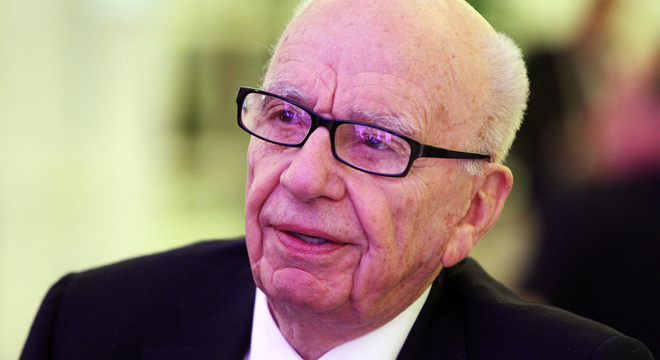The latest twist in the News Corporation phone hacking scandal came today in the form of a scathing UK parliamentary report that, among other things, states that its patron Rupert Murdoch “is not a fit person to exercise the stewardship of a major international company.”
The report, by Parliament’s select committee on culture, media and sport, “examines whether or not there is good evidence to suggest that the Committee and its predecessor Committees have been misled by any witnesses during the course of their work on the phone-hacking scandal.” While the report itself is harsh, the committee was apparently split on party lines about at least some of its conclusions.
“The issue on which no Conservative member felt they could support the report itself was the line in the middle of the report that said that Mr. Rupert Murdoch is not a fit person to run an international company,” Louise Mensch, a Conservative member of the panel told reporters, according to The New York Times.
Ofcom, Britain’s media regulator, issued a statement in response to the report, saying that it has “a duty under the Broadcasting Acts 1990 and 1996 to be satisfied that any person holding a broadcasting licence is, and remains, fit and proper to do so. Ofcom is continuing to assess the evidence that may assist it in discharging these duties. As part of this we are considering the Committee report.”
News Corp. itself issued a terse response to the report a few hours after its release.
“News Corporation is carefully reviewing the Select Committee’s report and will respond shortly,” the company said in a statement. “The Company fully acknowledges significant wrongdoing at News of the World and apologizes to everyone whose privacy was invaded.”
Steve Hewlett, a columnist at The Guardian and host of the BBC Radio 4 Media Show, called the report “pretty damning.”
“Everyone was kind of astonished,” at the conclusions, Hewlett told TPM. “[The] MP’s were very, very annoyed”
Hewlett said he expects an “imminent” decision on the police files on phone hacking, email hacking, and police bribing sent to prosecutors.
Back in March, Guardian reporter Nick Davies, who has reported extensively on the phone-hacking story, suggested to PBS’ FRONTLINE that the scandal will continue to unfold for years.
“It’s almost unstoppable, this process,” he said. “… we have not yet got to the bottom of the barrel.”
Matt Kelly, editor and publisher of Compliance Week, an information service on corporate governance, risk and compliance, told TPM today that he suspects the report “is payback that many members of Parliament have wanted to give to the Murdoch family for a long time” and that it offers “ammunition” to non-Murdoch investors in News Corp. “to wrest power away from Rupert Murdoch and the family.”
But Kelly also sees a bigger picture.
“The most damning thing in my opinion… when you look at something like this coming right on the heels of this mess with Wal-Mart, it gives such a sour taste in the public mouth about large companies,” he said.
As it faces fallout from the report in the UK, News Corp remains under investigation in the U.S.. The U.S. Justice Department last summer began looking into allegations that News Corp. had hacked the phones of 9/11 victims, and Attorney General Eric Holder himself met with a number of victims’ families of victims. On Tuesday, a Justice Department spokeswoman said that the investigation was ongoing. The department is also investigating whether News Corp. violated the Foreign Corrupt Practices Act (FCPA) when its employees allegedly paid bribes to foreign officials such as police, law enforcement, and corporate sources, according to Reuters.
Tuesday’s report comes shortly after some observers were speculating that Murdoch was regaining his footing. Just last week, as both Murdochs were preparing to testify to the Leveson Inquiry, an investigation into the culture, practices and ethics of the press, Paul Connew, former editor of the Sunday Mirror and deputy editor of the Daily Mirror and News of the World, told TPM he expected Rupert Murdoch to “come out fighting.”
“I think he sees this as an opportunity to claw back some of his lost PR ground,” Connew said. “There are quite a few politicians in high places, current and past, who might be very nervous about what he might say.”






